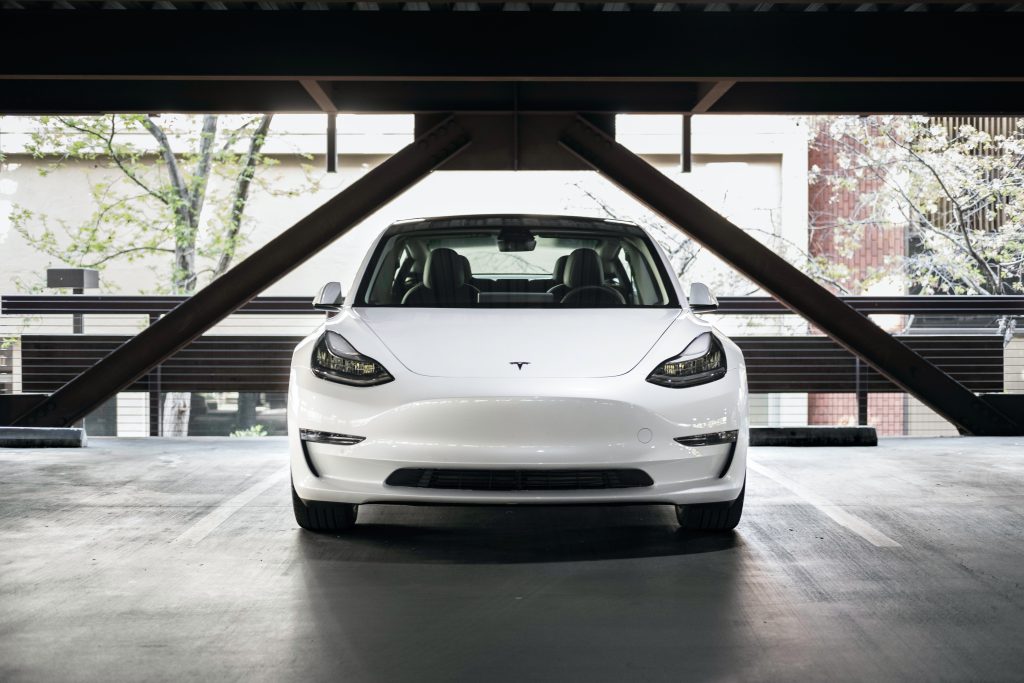By: Otaiba Ahsan

One key consideration for anyone looking to buy a Tesla Model 3, or any electric vehicle (EV) in general, is its range. In other words, how far it can go on a single charge. As a Tesla owner myself, it’s one of the most common questions that I’m asked and the answer’s not as simple as you might think… Continue reading to explore factors that affect the Model 3’s range, and some tips on how to maximize it. Let’s see how far a Tesla Model 3 can go on a single charge.
Battery and Range
Currently, Tesla offers three trims of the Model 3 that can be ordered directly from their site. This includes the Rear-Wheel Drive, Long Range and Performance models, respectively. The Rear-Wheel Drive trims are currently shipped with a lithium iron phosphate (LFP) battery, whereas the Long Range and Performance models have a lithium-ion battery pack. The key difference for you and me, is that LFP batteries can be charged to 100% each day, whereas lithium-ion batteries are recommended to be charged between 80% and 90% to avoid faster degradation of your battery.
So how far can these three models go on a full charge? Tesla provides estimated ranges that are calculated by the Environmental Protection Agency (EPA) in the United States. The EPA runs standardized tests on EVs to determine their range under various conditions. Here are the current EPA estimated ranges on a full charge for the different Model 3’s:
- Rear-Wheel Drive with 18” aero wheels*: 438 km
- Long Range All Wheel-Drive with 18” aero wheels*: 576 km
- Performance with 20” Überturbine Wheels: 507 km
*If you opt. for the 19” sport wheels for the Rear-Wheel Drive or Long Range models, you’ll see a slight decrease in the estimated range.
Factors That Affect Range and Tips to Maximize
While EPA estimated ranges sound great, it’s quite difficult to actually squeeze that much distance out of your car. The reason for this is that there are several factors that affect your range…
1. HVAC usage: The use of the air conditioning and especially the heating system can impact range, as it requires energy to operate and can reduce efficiency.
TIP: Crank the seat warmers up and turn the heating off (or down), this can help reduce HVAC impact.
2. Wheel size: The size and type of wheels on your Model 3 can affect range, as larger wheels and performance-oriented tires can create more drag and decrease efficiency.
TIP: When purchasing your model 3, try to go for 18” aero wheels if range is your priority.
3. Driving speed and style: Higher speeds and aggressive driving can decrease range, as it requires more energy to maintain speed and accelerate.
TIP: Try and maintain a reasonable speed when driving on the highway and avoid constant bursts of acceleration (as thrilling as they can be). You can also enable “chill mode” which limits acceleration for a slightly smoother ride. This can be done in your Tesla by touching Controls > Pedals and Steering > Acceleration and tapping “Chill”
4. Temperature: Extreme temperatures, both hot and cold, can impact battery performance and reduce range. In cold weather, the battery may have reduced capacity and take longer to heat up, while in hot weather, the battery may need to be cooled to maintain performance.
TIP: Always precondition your Model 3 before taking it for a drive, no matter what time of year. Open the Tesla app and select “Climate'” and then tap “On” which will initiate the preconditioning of your car. You can also hit “Schedule” from the home screen in the app and then choose a time that you would like your car to precondition every day. This is useful if you’re consistently driving your Tesla at the same time each day.
5. Payload: Carrying more weight in the vehicle, such as passengers or cargo, can decrease the range of the vehicle as it requires more energy to move the extra weight.
TIP: Remove any heavy cargo if possible before going for a drive where you need more range.
Other factors affecting range include terrain, as driving uphill or downhill requires energy to maintain speed, and wind, where additional energy is required to keep the same speed due to more drag. There isn’t much that can be done to combat these factors as they are out of our control.
The Bottom Line
Tesla’s lineup of Model 3’s offers some of the best ranges out of any electric sedan on the market. Keep in mind, the EPA’s estimated ranges become less accurate over time, as your car’s battery health will naturally decline. So how far can a Tesla Model 3 go on a single charge? It’s a safe bet to reduce your maximum estimated range by 10-20% when trying to determine how far it can actually go on a full charge. That should account for those range-affecting factors mentioned above.
